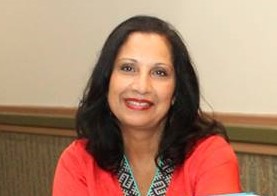A few days ago, I heard that the famous Zen master and Buddhist monk Thich Nhat Hanh (affectionately referred to as Thay) passed on. He was a global spiritual leader, a peace activist and the father of “mindfulness”, and one could even say of “Western Buddhism”. He revitalized Buddhism to its original essence and integrated it with Western teachings in psychology and other fields. It is truly amazing to review the extraordinary life of this simple and humblest of human beings- a luminous soul who reminded us what being human can truly be.
Even though I have read only a few of his over 100 books, I appreciated the simplicity of his messages. When teachers or saints come along in modern times to remind us of universal truths and laws, it fills a thirst for humanity that we all have even if we are unaware of it. I often used his quotes along with quotes from Rumi, Rilke, Tolle and many other poets/philosophers in my training and facilitation work. Some of my favorite teachings are below:
Mindfulness- Being in the present moment is what we as human beings have forgotten as our minds race with so many thoughts trying to keep up with the information overload and pressures of modern society. Thay brought this simple teaching to so many people, and did it a long time ago before it became a huge industry by itself. Despite practicing it myself for a long time, I notice how I catch myself drifting and have to bring it back over and over again.
Presence- He always talked about presence as a gift, which is such a profound reminder. Our presence is a gift for our loved ones and others, if we are mindful and fully present. Our busy lives let us easily forget this simple truth. We have to visualize ourselves as a pool of energy that effects everyone and everything around us, even if there is no visible impact at the moment.
Compassion – He also emphasized that compassion could heal all conflicts. What is most important to those who are suffering is to be truly heard and acknowledged. Hence the kind of reconciliation talks that were held in South Africa continue to be a benchmark of healing events that I hold up as a model for all conflicts around the world. The sufferer needs to be heard and understood, before any other step can be taken. I totally believe that all conflicts in the world could be transformed if we practiced this, whether the suffering was centuries ago or in current times.
Deep Listening- As a dialogue practitioner and facilitator, I have always loved deep listening both as a practice for myself and a skill that I taught. It is a continuing practice, whether in personal, social or corporate settings. Thay spoke at an Oprah Super Soul interview about how deep listening is a type of listening that is free from everything but compassion. There is no coaching, no advice, no redirection or reframing. It is pure listening allowing the sufferer to empty their hearts. Later on, one can come back to suggest or help or advice, but not in the beginning when the heart is being emptied. I always found this to be a beautiful yet hard to practice reminder.
Love- I was fascinated to learn – on the same Oprah interview- that Thay had explained in a letter to Martin Luther King that self-immolation of Buddhist monks during Vietnam War Era was an act of love, not suicide. They wanted to bring attention to the criminality of the war, and this act was their only choice. It reminded me of the Tunisian vegetable seller who killed himself, which then triggered the Arab Spring movement. Their “micro-violence” is meant to bring attention to a “macro-violence” that is ignored and allowed to go on.
Thich Nhat Hanh has left an amazing treasure for all of humanity, and we are grateful for the gift of his presence here on Earth until the mature age of 95.

Be First to Comment